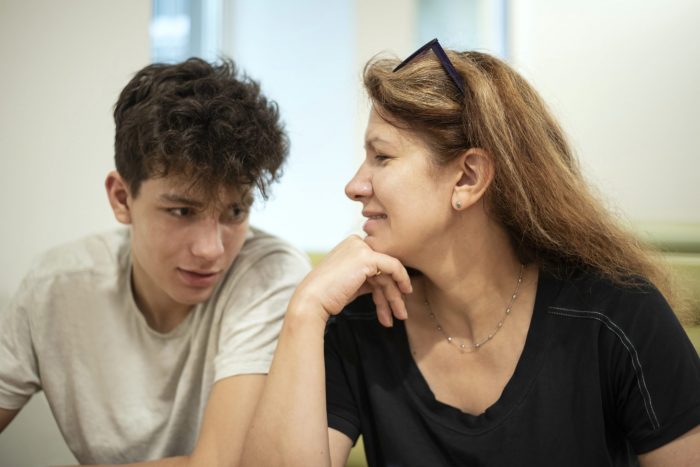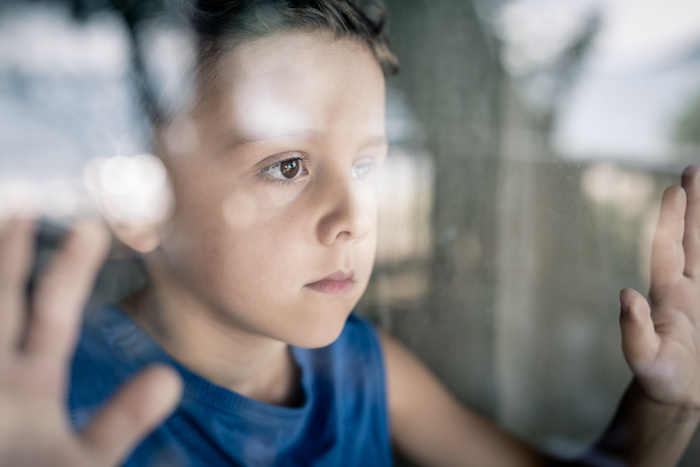Category Archives for "Attachment"
Emotional Neglect-Childhood Emotional Neglect-Jonice Webb, PhD-Dr. Jonice Webb-Running on Empty-Self-Discipline-Emptiness-Unfulfilled-Finding Meaning
Emotional Neglect-Childhood Emotional Neglect-Jonice Webb, PhD-Dr. Jonice Webb-Running on Empty-Self-Discipline-Emptiness-Unfulfilled-Finding Meaning

What happens when two people, each of whom grew up with Childhood Emotional Neglect, meet and marry? They create the doubly emotionally neglected couple.
Childhood Emotional Neglect (CEN) is a subtle, often invisible childhood experience that many adults experienced in their families. As children, they didn’t know it was happening. And as adults, they typically have no memory of it.
Yet its effects continue to hang over them like a gray cloud, coloring their entire adult lives. The cloud inserts itself into their marriages, causing emotional distance, miscommunication, and lack of intimacy.
Childhood Emotional Neglect (CEN): A parent’s failure to respond enough to the child’s emotional needs.
When you grow up with parents who do not validate or respond to your feelings, your child brain knows just what to do. It builds a wall to block off the most deeply personal, biological part of who you are: your emotions. Safely tucked behind the wall, your parents (and you) can pretend that your feelings aren’t even there, or don’t matter.
Decades later, when you are in a serious relationship, a series of very predictable problems ensue. That wall that helped you as a child interferes. It blocks off the invaluable internal resource you need to bind and connect you to your partner: your emotions.
Interestingly, those who grow up with Childhood Emotional Neglect tend to be attracted to one another. When your own emotions are blocked off, you are bound to feel most comfortable with a partner whose emotions are also tucked safely away.
So what happens when two people who grew up emotionally neglected marry? How does the couple deal with two walls between them, over the years of being together?
Meet Jason and Betsy, the double-CEN (Childhood Emotional Neglect) couple. They’ve been married for 10 years, and neither is aware of their CEN. It’s Saturday morning, and they are having a mundane conversation.
Betsy: I’ll drop off Curt at basketball practice at 9:30. Can you pick up Emma from gymnastics at 9:45?
As she makes this request, Betsy is secretly worried that Jason will be irritated that she’s asking him to do something. So as she asks, she watches his reaction carefully.
Jason sees Betsy giving him a look he can’t interpret, and assumes she’s trying to manipulate him somehow. He decides to call her bluff by martyring himself to make her feel bad.
Jason: What’s the big deal? Why does this require us both? I’ll do both drop-off and pick-up.
Betsy notices the edge in Jason’s tone and assumes it’s because she asked him to do a task for her. “Would it kill him to chip in on the weekend?” she thinks to herself with aggravation.
Betsy: Just forget it. I’ll do both.
As Betsy does the drop-off and pick-up that morning, she seethes inside at how unwilling Jason is to help out with the kids.
Meanwhile, Jason sits at home feeling three competing things: frustrated at his “manipulative” wife, perplexed about what really happened between them that morning, and vaguely guilty that he is sitting at home while Betsy does all the work.
Eventually, the guilt wins out. Feeling bad, he starts making a big pot of chili, which he knows Betsy likes.
No matter how connected you are by love, companionship, children, or history, you are not able to connect enough in the most important way: emotionally. It’s not that you don’t feel emotion (both Betsy and Jason have plenty of emotions in the description above), it’s just that neither of you is well enough in touch with what you are feeling so that you can share them and use them as you are meant to as a couple.
While your parents were busy ignoring your feelings, you were missing an important childhood experience. You were not learning how emotions work. You didn’t have the chance to learn how to know when you’re having a feeling, identify that feeling, put it into words, or share it with another. These are the skills required to build emotional intimacy with your partner, and you may not even realize that you don’t have them.
You probably noticed how very out of touch Betsy and Jason are with each other. Betsy views Jason as unwilling to help, which isn’t true, and Jason views Betsy as trying to pull something over on him, which she isn’t. Both end up feeling upset with each other for false reasons. And neither has the communication skills to discover that his/her assumptions and readings of the other are wrong.
In addition to the normal conflicts that all couples encounter, incorrect readings also contribute to the wedges that drive you farther and farther apart every day. The longer you are together, the more distant you feel.
I see many double CEN couples in my office, and one thing I often notice is that they usually have a genuine bond of love for each other. But despite the love, one or both members of the couple senses that something very important is missing. One or both of the members feel, despite the love, uncomfortably lonely in the marriage.
If you recognize yourself and your partner as you read this, do not despair. There are answers!
You can use this newfound understanding to reach out to your partner. Now that you know what divides you, you can break down your walls, and power forward to a brighter, more connected future.
Because the great thing about Childhood Emotional Neglect is that it can be healed.
To learn how to take the steps to reach out to your partner and break through the walls that block you, see the book, Running on Empty No More: Transform Your Relationships With Your Partner, Your Parents & Your Children. To learn more about Childhood Emotional Neglect, see my first book Running on Empty.
CEN can be invisible and unmemorable so it can be difficult to know if you have it. To find out, Take the CEN Questionnaire. It’s free.
A version of this post was originally posted on psychcentral.com. It has been republished here with the permission of the author and psychcentral.

Permissive parents are difficult to spot. Many appear to be great parents to an observer, and even to the children who are raised by them. Even after those children grow up, it still appears that way.
Why? Because permissive parents are often very loving. They may provide a childhood that seems ideal to their children after they grow up.
Permissive parenting is a type of camouflage. It’s a case of the inadequate parent disguised as adequate; the conflict-avoidant parent disguised as kind.
Not that permissive parents purposely disguise themselves. Quite the opposite. In fact, most permissive parents really love their children and want to do right by them. Yet they inadvertently fail their children in the most important way.
The Permissive Parent: This is the “Don’t worry, be happy” parent. This parent avoids conflict with the child. They view themselves and behave, more like a friend than a parent. They consult with the child on decisions that they should be making in their role as a parent. They don’t provide enough structure to the child or impose consequences when appropriate.
In short, by failing to perform the difficult role as a parent they over-empower the child. This may feel wonderful to the child but is, in fact, a form of Childhood Emotional Neglect or CEN.
Psychologist Diana Baumrind was the first to describe the Permissive Parent way back in 1966. Here are Diana Baumrind’s thoughts about this type of parent:
“She presents herself to the child as a resource for him to use as he wishes, not as an ideal for him to emulate, nor as an active agent responsible for shaping or altering his ongoing or future behavior. She allows the child to regulate his own activities as much as possible, avoids the exercise of control, and does not encourage him to obey externally defined standards.”
If you weren’t raised by permissive parents, as you’re reading this you may be feeling envious of the child who was. After all, what child wouldn’t love to have that kind of freedom from responsibility and consequences?
But that kind of freedom has a dark underside. In fact, those raised by permissive parents face a particular set of challenges in adulthood.
Deep down, the adult child of permissive parents feels flawed. With no explanation for your struggles, you assume there is something wrong with you.
Fortunately, there is a way out of this. Recognize the source of your struggles. Recognize that it’s probably not your parents’ fault since they most likely thought they were showing you love and care by not making you angry or setting limits. They just wanted a happy child. They had no idea that they were emotionally neglecting you.
Know that all of these skills are learnable.
If you’re reading this blog and thinking you might be a permissive parent yourself, don’t despair. It’s not your fault! We all raise our children the way we ourselves were raised unless we consciously override it. And you can!
To find out more about permissive parenting, how to acquire the skills you missed, and how to make sure you don’t raise your children this way, see the books, Running on Empty, and Running On Empty No More: Transform Your Relationships.
A version of this article first appeared on Psychcentral.com. It has been reproduced here with the permission of the author and Psychcentral.

Just Letting You Know: On Saturday, 4/4 at 3 p.m. EST I’ll be on Instagram Live answering your questions about coping with the social distancing and anxiety of this pandemic. Join me at @drjonicewebb! I would love to connect with you during this difficult time.
As the psychologist who literally wrote the book on Childhood Emotional Neglect or CEN, I have heard thousands of people describe what it was like for them to grow up in a family that avoided talking about meaningful or emotional topics, and who treated feelings as irrelevant or burdensome.
In case your reaction to the paragraph above was, “What’s the big deal about that,” I will take a moment to explain.
Your emotions are biologically wired into you for a reason. They go far beyond just the fight-or-flight mechanism. They are also an expression of your deepest self. Your feelings tell you what you like, love, enjoy, dislike, abhor, want and need, what harms you, and much, much more. Your emotions are like your rudder; they ground you and direct you. They also connect you.
When, as a child, your family is generally uncomfortable with the vital resource of emotions embodied in each of its members, when your family treats your feelings as if they do not exist or are a burden, you learn to do the opposite of what is healthy.
You learn to push your feelings away and wall them off. You learn to view them as a problem instead of the solution they are meant to be. You grow up separated from the deepest expression of who you are.
Then, as an adult, instead of listening to your gut, you ignore it. Instead of knowing what you want, you ignore it. Instead of seeking what you need, you ignore it. On and on and on, you miss the cues that should be your roots, your rudder, and your meaning.
You are literally living your life without taking your own feelings into account. But that does not mean that they are gone.
Core Feelings: The feelings you had most often as a child. They can be positive feelings or negative ones. They are the feelings you had so often as a kid that they have become a part of who you are. They reside in your body, with or without your awareness of them.
Every adult alive has brought feelings forward from their childhood, whether they realize it or not. The vast majority of emotionally neglected children are easily revisited by the alone, insecure, and lost feelings they felt so often as kids. These 3 emotions simmer under the surface of their adult lives, easily touched off by current events that recreate them in some vague way.
Enter the Covid-19 Epidemic. Enter quarantines, sheltering-in-place, and social distancing.
Hello, Core Feelings.
I hope that as you read this you are already thinking about how the feelings of your own childhood may be touched off by our current situation. And now I’m going to give you some help with that.
First, I want you to know that most everyone is feeling these 3 feelings during this extraordinary time, even those who did not grow up with CEN.
Alone: Social distancing is keeping the population physically isolated from each other, and so most people are naturally feeling alone right now. But when “alone” is your core feeling, this situation returns you back there in an achy sort of way. The aloneness you naturally feel now as an adult gets combined with the aloneness you felt as a child and you feel it with extra power and pain.
Insecure: Everyone is wondering what’s going to happen tomorrow and in the future, and so everyone’s feeling of security is threatened right now. But if you were instilled with a deep sense of insecurity as a child, you are more at risk of doubting yourself and your ability to handle whatever is to come. You may be feeling some anxiety and wondering how — and if — you will be able to cope.
Lost: Just as it happened for you as a child, your feelings of aloneness and insecurity threaten to undermine the roots you have planted for yourself. Since this feeling has been with you for so very long you are vulnerable to helplessness and hopelessness about finding your way through this worldwide crisis.
Even though you may feel alone, insecure, or lost right now, please know that you are not. Your feelings are expressions of your emotional truth but they are not necessarily a reflection of external reality.
When you let your feelings run rampant on their own, you are at their mercy.
When you own them, consider them, and process them, you can put the past where it belongs, choose the emotions that are helpful, and put the rest in their place.
You can use this pandemic to become more authentic. You can claim your power to shape your choices, your future, and your life by taking this chance to face your feelings and heal your Childhood Emotional Neglect.
To learn how to take the steps to recover your feelings, process them, and use them see the book Running On Empty. To join an online community of CEN people going through the healing steps together see the Fuel Up For Life Program.
To find out if you grew up with CEN Take The Emotional Neglect Test. It’s free.
On Saturday, 4/4 at 3 p.m. EST I’ll be on Instagram Live answering your questions about coping with the social distancing and anxiety of this pandemic. Join me at @drjonicewebb! I would love to connect with you during this difficult time.

I have often talked about the effects of Childhood Emotional Neglect or CEN on a marriage. It’s somewhat like an invisible barrier that blocks spouse from spouse, holding the two emotionally apart, creating and feeding distance and a deep sense of being alone.
But since Childhood Emotional Neglect can be so difficult to pinpoint in your own, or your partner’s, history, it’s not easy to know if it’s playing a part in your marriage.
Why is the lack of fighting a potential sign of Emotional Neglect? Strangely enough, often it’s the couples who fight the least who are in the most trouble. This is because fighting requires a willingness to challenge each other, an ability to tolerate anger (your own and your partner’s), and some element of emotional connection.
Emotional connection, the opposite of Emotional Neglect, is not made up solely of positive feelings like warmth, affection, and love. It also requires an ability to tolerate conflict with each other, and a mutual trust that you, as a couple, can get angry and upset, share difficult words, and come through to the other side with your relationship intact.
A willingness to fight is a willingness to share painful emotions. And that’s a sign of emotional connection.
There is no feeling of loneliness worse than that experienced inside of a relationship. It feels terrible to feel alone when you’re with someone. And loneliness is one of the greatest warning signs of an emotionally neglectful couple.
You can have a relationship that seems great, with a partner who has a good sense of humor, common interests, a good job, and kind nature, but still feel alone.
This happens when your relationship with your partner is good on the surface but lacks emotional substance. Emotional connection is the foundation of a relationship. When it’s weak, the relationship has an emptiness to it. It can take two people years to see past their good surface connection and realize what is missing underneath.
Do you find yourself using friends or family to “fill in” for your spouse when you need support? If so, is it because your spouse isn’t there? Because she often says the wrong thing? Because you’re not sure he’ll care?
In a close, connected, non-neglectful marriage, your spouse will be the first person you want to tell when things go wrong or when something great happens.
One key question to ask yourself is: Does she want to be the first person? If you don’t think so, this is a sign of other problems in your marriage. I encourage you to find a skilled couple’s therapist and convince your partner to go with you.
If you think your mate does want to be your go-to person, then the problem may be simply that he doesn’t know how to be that person for you. This is a matter of skills, and the good news is that these skills can be learned.
“I’m happy in our relationship in some very important ways, but yet it feels like something is missing.”
“I read an article about relationships that struck a chord with me. Will you read it for me, and let me know if you have a reaction to it too?”
“Did you know that not fighting in a relationship is not necessarily a good thing?”
“I love you so much, and I want us to be even closer. Will you work on this with me?”
To learn how to build your emotion skills see the book Running on Empty: Overcome Your Childhood Emotional Neglect. To learn how to share them in your marriage to build emotional intimacy see the book Running On Empty No More: Transform Your Relationships.
A version of this article was originally published on Psychcentral. It has been republished here with the permission of the author and psych central.

Yes, it’s true. Emotional Neglect can feel like abandonment to a child.
Let’s start with a refresher on Childhood Emotional Neglect. What exactly is it?
Childhood Emotional Neglect is far more common than most people would think. That’s because it happens far more simply than most people would think and is far more powerful, as well.
Childhood Emotional Neglect or CEN happens when the parents fail to respond enough to the emotions of the child. That’s all it takes.
You may grow up with plenty of food, clothes, and a good school. You may have a fine education and even a stay-at-home parent. But none of this is related in any way to Childhood Emotional Neglect.
You may enjoy having all of these basic needs fully met throughout your childhood and, from the outside, you may even appear to be fortunate, indeed. In fact, even from the inside, you may believe that too.
But here is the hard reality. There is no more basic need than emotional validation, emotional connection and emotional support. All children require this. And they need to receive enough of it from their parents in order to become emotionally strong and thriving adults.
Why? Because emotions are far more important than most people think. They are wired into us before birth for a very good reason: to help us survive and thrive.
Our feelings tell us what to do and when to do it and why we’re doing it. They drive us, direct us and motivate us. They tell us with whom we should connect and why we should connect with them, and then they connect us.
In short, our feelings are the deepest, most personal expression of who we are. They are messages from our bodies and when we ignore or discredit them, we are actually ignoring and discrediting ourselves.
So how does Emotional Neglect feel like abandonment to the child?
The vast majority of parents respond to an infant’s cries. Parents understand that a crying infant is uncomfortable in some way and needs attention; and to help out, an infant’s cries can be difficult to ignore. In this way, biology provides a way for a non-verbal infant to communicate its needs to its parents.
As children grow they develop verbal skills. They learn to say, “I’m hungry,” for example; but far too few parents teach their child to say, “I’m sad.”
As parents, we teach our children to express their physical feelings but we do a far lesser job when it comes to emotions.
First, do not worry because it is never too late. You can un-abandon yourself!
To do this follow the steps of recovery from Childhood Emotional Neglect (CEN).
Begin to pay more attention to your feelings, the vital messages from your deepest self. You will find that what you always thought was useless or shameful is actually incredibly useful.
When you follow this process of healing you will find your passion, your preferences, your strengths and your weaknesses, your joy, your needs, and yes, also your pain.
But as you allow yourself to experience all of these mixtures and nuances from within you will be building a richer, more complex, more powerful inner life that will transfer to your outer life.
You will be finding that long-ago abandoned child, reclaiming and validating and nurturing them. And in recovering the deepest expression of who you are, you will finally be allowed to become the person you were born to be.
To learn how to take the steps to recover your feelings and use them see the book Running On Empty. To join a community of CEN people going through the steps together with my guidance see the Fuel Up For Life Program.
To find out if you grew up with CEN Take The Emotional Neglect Test. It’s free.

Childhood Emotional Neglect (CEN) is, by definition, nothing. How can nothing be something? How can nothing be a source of enduring pain and struggle? It seems unfathomable… until you see it day after day, in your office, as I have.
Anything much. I don’t remember being talked to at all.
You have a right to your feelings, & the right to be heard & have them considered.
We believe in you.
How do you feel? What do you want? I will help you figure life out.
I love you. You are enough. I am proud of you.
There is nothing wrong with who you are.
Are you okay?
Do you want to talk about it? You look upset.
My love for you is unconditional.
There’s nothing in this world you cannot do. So stand up, shoulders back and go out there.
I’m sorry…
I wish they meant what they said.
That I was beautiful.
You can make mistakes and I will not think any less of you. You don’t have to be perfect.
Don’t be scared. It will be alright. Things will go wrong but it doesn’t matter. We’re all the same.
It’s OK to get angry/sad/mad.
Anything that wasn’t emotional abuse ……anything that didn’t leave me feeling worthless or that I had to please them for their attention.
———————————————————————————————————————————–
Recently I posted this blog’s title question on my Facebook Page. I got many thoughtful and heartfelt responses. The quotes above are a direct sampling of them.
Why did I ask this particular question? Because in my experience as a psychologist, I have found that people are naturally far more able to think about and describe what they wish their parents had not done or said to them than what they wish their parents had done or said to them.
This distinction is also a fair description of the difference between abuse and neglect. Abuse is an action, whereas neglect is a lack of action. Our brains record and remember things that happened (like abuse), whereas our brains do not notice things that don’t happen (neglect).
Which seems worse: a parent who screams and yells at a child and calls him names? Or a parent who simply does not talk to or engage the child at all?
I have seen that failure to engage, notice, and affirm a child does just as much damage to him or her as abuse, but the effects are different. An abused child will feel “hit,” verbally, physically, or emotionally; whereas a neglected child will feel simply “at sea,” invalid and alone.
I see Childhood Emotional Neglect (CEN) as one of the greatest potential threats to future generations. It is difficult to stop something that is invisible, intangible, unnoticeable, and unmemorable.
The subtlety of CEN gives it extra power. Many adults who grew up with an absence of emotionally attentive observations and questions like those listed above do not recognize the harm that this absence has done to them. And even when they recognize it, they can’t quite believe or grasp it.
People with CEN vastly underestimate its effects on them. CEN is, by definition, nothing. How can nothing be something? How can nothing be a source of enduring pain and struggle? It seems unfathomable… until you see it day after day, in your office, as I have.
A few reviewers of my book, Running on Empty, have said that the recovery chapters are unrealistic because they are about helping readers give themselves the attention, validation, and structure that they did not get in childhood. However, I know that people with CEN can make tremendous progress toward this. It requires effort and motivation, but it is very much possible. I know this because I have watched it happen many times.
All of the emotionally neglected people who offered those many requests in response to my question hold a secret key. A key to fulfilling their own needs; a key that offers healing, solace, and fuel.
And so on and so on, the answer lies within you. The beginning is self-awareness.
Because once you realize what you didn’t get, this tells you what you need. And once you know what you need, I hope you will also realize that you can get it. I hope that you will fight for what you didn’t get. Ask for help and accept support because you deserve it. And then you will have it to give to your own children.
To learn much more about how CEN affects all areas of your life sign up for the CEN Breakthrough Video Series. It’s free!
To learn more about how to give yourself and your children what you never got yourself, see the books, Running On Empty: Overcome Your Childhood Emotional Neglect and Running On Empty No More: Transform Your Relationships.
A version of this article was first published on Psychcentral.com. It has been republished here with the permission of Psychcentral.

It is definitely true that parenting is an incredibly complex job. We can all see that the huge majority of parents are honestly working hard to offer the very best they possibly can to their children.
As much empathy as I have for parents, being one myself, today I will be talking with all who are on the other side of the fence: those of you who are grown up now and are feeling that your relationship with your parents is a problem in your life.
There are indeed an infinite amount of ways that a parent/child relationship can go wrong. Many are subtle or confusing and can leave all parties feeling burdened or hurt.
Especially if you know that your parents love you, you may end up baffled about your relationship with them, and wondering what is wrong.
How does this happen? Why does this relationship have to be so complicated? Why can’t we just love our parents unconditionally?
Of course, there can be endless different explanations for any of these problems. But for most people, the answer lies somewhere in the area of what psychologists call individuation.
Individuation: The natural, healthy process of the child becoming increasingly separate from the parent by developing his or her own personality, interests, and life apart from the parent.
Individuation usually starts around age 13 but can be as early as 11 or as late as 16. Behaviors we think of as “teenage rebellion” are actually attempts to separate. Talking back, breaking rules, disagreeing, refusing to spend time with the family; all are ways of saying, and feeling, “I’m me, and I make my own decisions.”
Individuation is indeed a delicate process, and it doesn’t always go smoothly. When it doesn’t, and also goes unresolved, it can create a stressful or painful relationship between parent and adult child.
When your adolescence gets off track in any of these ways, a price is paid by both you and your parents. Much later, when you’re trying to live your adult life, you may sadly find yourself feeling burdened, pained, or held back by your parents. On top of that, you might feel guilty for feeling that way.
So now the big question. How do you know when you need some distance from your parents?
If you answered yes to one or more of these questions, and you also feel burdened by your relationship with your parents, it may be a sign that you need some distance to maximize your own personal growth and health.
Yes, parenting truly is the hardest job in the world. But parents are meant to launch you, not limit you. If your individuation didn’t happen fully through your adolescence, you may need to work at separating from your parents now in order to have the healthy, strong, independent life that you are meant to live.
So what does distancing mean when it comes to parents? It doesn’t mean moving farther away. It doesn’t mean being less kind or loving toward them. It doesn’t necessarily mean doing anything drastically different. In fact, distance can be achieved by changing yourself and your own internal response to what happens between you.
Watch for a future article sharing some of the basics of how to make those changes for yourself. In the meantime, you can learn much, much more about exactly how to do this in the book, Running On Empty No More: Transform Your Relationships.
Guilt is, for many, built into the adult separation process, unfortunately. So separating from your parents may be no less painful now, as an adult, than it was when you were an adolescent. But the good news is, you are grown up. You’re developed. You’re stronger. Now you can better understand what’s wrong.
To learn more about the parent/child relationship and how it can go wrong emotionally, see the book, Running on Empty: Overcome Your Childhood Emotional Neglect.
A version of this article was first published on Psychcentral.com. It has been revised and reproduced here with the permission of psychcentral.

Is Valentine’s Day just one big commercial created by the card companies? Actually, no, it is not. It’s a holiday that is rooted in ancient history. Valentine’s Day is thought to originate from the ancient Roman festival of Lupercalia that was held each year in the middle of February. It was a happy occasion which, in addition to celebrating spring, also included fertility rites and a lottery that paired men and women together based on the drawing of names.
Sounds fun, right?
Society has changed since ancient times, and Valentine’s Day has transitioned through the centuries into something quite different. It’s supposed to be a happy celebration of love and, for many, it is. But it also poses unique challenges to people married and single, dating or not dating, wishing for a relationship, or happy alone.
Let’s start by taking a look at the various challenges of Valentine’s Day. You may identify one, several, or even all as applying to you. Either way, no worries. There are answers!
All of these challenges can affect anyone, of course. But they are especially problematic for you if you did not receive enough emotional validation and emotional connection from your parents during your childhood or, in other words, if you have Childhood Emotional Neglect (CEN).
If you struggle with any or all of these challenges this Valentine’s Day, I want to first tell you sincerely that you are not alone!
And it is surely not a bad thing to be challenged. Every challenge you encounter in your life is actually an opportunity for growth. And this holiday is no exception. I’m going to prepare you for Valentine’s Day by helping you use it as a way to flourish and progress forward in your life.

Whether you are happily single or actively seeking your person, use this day as an appreciation day for yourself. Consider the gifts you were born with and the qualities you are able to offer others. Think about what you like, what makes you happy, and what you want and need. Consider who the important people in your life are, and allow yourself to feel grateful for them. This day is your day to love and appreciate yourself.
Overall, keep this holiday in perspective. Try not to expect your partner to make you feel a certain way and, conversely, try not to expect to make your partner feel any particular way. Instead, keep your focus on simply having an enjoyable time. And keep in mind that it’s no one else’s role to make you happy. We are each responsible for our own happiness.
Relationships have extraordinary power to bring us happiness and fulfillment, yes. But they cannot be the primary source of our feelings about ourselves or our lives. Ultimately, we are each responsible for our own feelings and for making sure our own needs are met. Also, it’s hard for others to love us when we don’t yet love ourselves.
So, paradoxically, this holiday about couples is best spent focused on the very most important person in your life: yourself.
Childhood Emotional Neglect is invisible and hard to remember so it can be difficult to know if you have it. If you struggle to understand and express feelings in your relationships, Take the Emotional Neglect Test. It’s free.
To learn much more about getting comfortable having and sharing feelings in your relationships see the book Running On Empty No More: Transform Your Relationships.

And how it affects your day-to-day life now.
Emotional Neglect: A parent’s failure to respond sufficiently to your emotional needs. In other words, Emotional Neglect is something that failed to happen in your childhood.
To demonstrate why emotional neglect as a child is so invisible, let’s do an experiment.
First, I’d like you to think of an event that happened yesterday. It can be anything, big or small, just something that happened.
Second, I’d like you to think of something that didn’t happen yesterday.
My guess is that the second request was quite a bit more difficult than the first. That’s because our brains record events as memories. Things that fail to happen go unnoticed, unseen, and unremembered.
We have long been aware of the fact that what happens to us in childhood has a tremendous effect on who we become as adults. But the opposite is also true. What doesn’t happen for us in childhood has an equal or greater effect.
Remember that Emotional Neglect is a parent’s failure to respond enough to a child’s emotional needs. Because it’s a parent’s failure to act, rather than a parent’s act; just like we saw in our little experiment, it goes unseen, unnoticed, and unremembered.
Emotional Neglect comes in an infinite variety of forms. It can be incredibly subtle, such that 50 people could be watching it not happen, and be completely unaware.
An Example of Emotional Neglect in Action:
Joey’s friends gang up on him on the soccer field one day. So Joey comes home from school feeling sad. Joey’s parents don’t notice his sadness. Neither says, “Joey are you OK?” or “Did anything happen at school today?” No one seems to notice that anything is wrong.
This probably seems like nothing. Indeed, it happens in every home, and it generally is nothing.
So how could an incident like this damage a child and leave scars that remain into his adulthood? The answer lies in the natural, developmental needs of children.
In order for a child to grow up with a complete and solid sense of himself, who he is, and what he’s capable of, he (or she) must receive enough awareness, understanding, and acceptance of his emotions from his parents. If there is a shortage from the parents in any one of these areas, the child will grow up feeling incomplete and lacking some of the skills and self-knowledge and self-care that are necessary to fully thrive in this world.
And now back to our boy Joey, who came home from school feeling sad. If this happens on occasion, it’s no problem. If it happens with enough frequency and depth — that what Joey feels is not noticed, responded to or validated by his parents — Joey will grow up with a hole in his emotional development. He may deeply believe that his feelings are irrelevant, unimportant, or even shameful or unacceptable.
As a psychologist, I have seen time and time again that these subtle parental failures in childhood leave the adult with a feeling of being incomplete, empty, unfulfilled, or even questioning his own purpose and value.
This becomes even more difficult when the emotionally neglected adult looks back to his childhood for an explanation for why he feels this way. I have heard many emotionally neglected people say, “I had a great childhood. I wasn’t mistreated or abused. My parents loved me and provided me with a nice home, clothing, and food. If I’m not happy, it’s my own fault. I have no excuse.”
These people can’t remember what didn’t happen in their childhoods. So as adults, they blame themselves for whatever is wrong in their lives. They have no memory of what went wrong for them, so they have no way of seeing it or overcoming it, to make their lives happier.
In addition to self-blame, another unfortunate aspect of emotional neglect as a child is that it’s self-propagating. Emotionally neglected children grow up with a blind spot when it comes to emotions, their own as well as those of others.
When emotionally neglected children become parents themselves, they’re unaware of the emotions of their own children, and they raise their children to have the same blind spot. And so on and so on and so on, through generation after generation.
My goal is to make people aware of this subtle but powerful factor. To give everyone the ability to look back and see the invisible; have the words to talk about it, and an opportunity to correct it and stop blaming themselves.
I want to make the term Emotional Neglect a household term so that parents will know how important it is to respond sufficiently to their children’s emotional needs and understand how to do it.
I want to stop this insidious force from sapping peoples’ happiness and connection to others throughout their lives and to stop the transfer of Emotional Neglect from one generation to another to another. I want to give answers to those many people who are living their lives feeling disconnected and unfulfilled, and wondering what is wrong with them.
To learn more about Childhood Emotional Neglect, how it happens and how to recover from it, see the books, Running on Empty: Overcome Your Childhood Emotional Neglect and Running On Empty No More: Transform Your Relationships With Your Partner, Your Parents & Your Children. Since CEN is so subtle and invisible, it can be hard to know if you have it. Take the Childhood Emotional Neglect Test.
A version of this article first appeared on YourTango.com. It has been reprinted here with the permission of YourTango.

Marc
Marc’s parents divorced when Marc was seven. From that point on, he was raised by his mother, with occasional “check-ins” by his father. Marc’s mother owned and managed a deli, and had to work long hours to support Marc and his two younger siblings. Marc hurried home from school to pick up his siblings at the bus stop, made dinner for them, and often was responsible for getting them to bed.
Alise
When Alise was nine, her mother was diagnosed with multiple sclerosis. As Alise grew into middle school and high school, her mother was at home, getting sicker and sicker. The more disabled her mother got, the more Alise picked up the slack at home. She cared for her mother, did the grocery shopping, and even fought with insurance companies over her mother’s medical needs.
There are many ways in which the child can become what therapists call, “parentified.” Addicted, depressed, financially pressured, physically ill, or bereaved parents are some examples.
Believe it or not, there is a silver lining to being parentified. Marc, for example, grew up to be a very responsible man. He worked his own way through college because he was determined to have a career. He didn’t want to struggle financially, as his mother did. Marc is now a giving, caring husband and father. He knows how to parent because he did it as a child.
Like Marc, Alise is also a very responsible adult. She’s a research scientist in the medical field. Alise is driven to find cures for incurable diseases, and she works long hours by choice to meet her passionate goal. She is a loving mother and wife. Alise is excellent at giving and care-taking, for her family and for the world. Because her childhood prepared her to be.
Yes, there are far worse things that one’s childhood can prepare her to be. In many ways, Marc and Alise are in an excellent position to live happy, productive lives.
However, there is a serious downside to being parentified.
Marc
Marc learned many lessons from his childhood. He works long hours and supports his family well. Yet as those around Marc thrive and grow, Marc does not. His wife, and the mother of his children, is an alcoholic. So while she repeatedly drinks, passes out, and drops the ball in caring for the children, Marc quietly picks up the slack. He tries and tries to help her get sober. He lives under a black cloud, and cannot see that he has simply re-created his childhood.
Alise
Alise is busy saving the world, and this is her blessing and her curse. She enjoys success and the love of her family, yet she grows more and more tired every day. Alise learned everything she needs to thrive in her childhood, except for one key thing. She did not learn that her needs are important. In fact, she didn’t learn that she even has needs. Alise lives under the same cloud as Marc. Each day she wonders what joy is. Each day she longs for what’s missing in her life.
If you were in the role of the parent as a child, your life is about to change. You are about to re-parent yourself in a way that you missed as a child. You’re going to start living as you were always meant to live and experiencing the joy, happiness, and care that you’ve always deserved.
To learn more about the parentified child as well as other forms of Childhood Emotional Neglect and how to heal from them, see the book, Running on Empty: Overcome Your Childhood Emotional Neglect and Take The Emotional Neglect Test. It’s free on this website.
A version of this article was originally published on psychcentral as When the Child Becomes the Parent. It has been reproduced here with the permission of psychcentral.